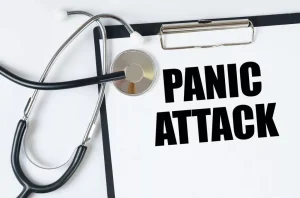
The CDC and National Institute on Alcohol Abuse and Alcoholism (NIAAA) define binge drinking as drinking a large amount of alcohol in a short period. Five or more drinks in a short period are considered a binge for men. For women, four or more alcoholic beverages in a short period are considered binge drinking.

Fetal alcohol spectrum disorder (FASD) Raising Children Network

A small glass (125ml, ABV 12%) of wine contains about 1.5 units of alcohol. Alcohol withdrawal management – appropriate processes for the management of alcohol withdrawal. If you drink during pregnancy your baby might develop fetal alcohol spectrum disorder (FASD). More than 8 units of alcohol what is alcoholism in a single session for males, or more than 6 units in a single session for females is the technical definition.3 That’s equivalent to about four pints of normal strength beer for a man or three pints for a woman.
Study Reveals the Effects of Binge Drinking Differ By Gender
Men (28.8%) are more likely to binge drink than women (20.4%), but the difference is binge drinking effects getting smaller. Solutions Healthcare has helped over 2,000 people who have struggled with substance use and mental health. Our staff consists of many licensed addiction and mental health treatment facilitators and other staff who are ready to share their experience and their success.
- Knowing what counts as one standard drink can help you figure out how much alcohol you drink and whether it would be considered excessive.
- The risk to your health is increased by drinking any amount of alcohol on a regular basis.
- The term “binge” was originally adopted to describe a pattern of problematic drinking characterized by heavy use followed by a period of abstinence.
- Or by depressing the gag reflex, which puts a person who has passed out at risk of choking on their own vomit.
- Long-term damage from heavy alcohol use isn’t limited to people with alcohol use disorder.
- Binge drinking, on the other hand, poses a number of risks to our health, both short- and long-term.
How Common Is Binge Drinking?
These may help them gain control of their drinking habits or even stop drinking altogether. Some options may include finding replacement activities or seeking professional help. The systemic effects of chronic binge alcohol consumption and the principal organ systems affected. Excessive alcohol use is a term used to describe four ways that people drink alcohol that can negatively impact health. Or by depressing the gag reflex, which puts a person who has passed out at risk of choking on their own vomit.

There’s not a lot of research on how long the physical effects of binge drinking last, or whether your body can recover completely. More research shows that even a single episode of binge drinking can have serious effects on all parts of your body, not just your brain. People who binge drink (drink heavily over a short period of time) are more likely to behave recklessly and are at greater risk of being in an accident. The NHS defines binge drinking as ‘drinking heavily over a short space of time’.2 Another way of thinking about it is ‘drinking to get drunk’.
Binge drinking can lead to anti-social, aggressive and violent behaviour. “These numbers can vary based on the person’s metabolism, size, and weight,” he says. Smaller people, for instance, could reach the threshold with fewer drinks.
- Someone who binge drinks may experience impaired judgment, nausea, vomiting, and even unconsciousness.
- Adults under 35 are more likely to do this than other age groups, and men are twice as likely as women.
- More researchers are looking at the effects of alcohol on the intestinal microbiome — the bacteria and other organisms that live inside us.
- The National Helpline does not provide counseling, but it does connect callers with local resources such as counseling services, support groups, and treatment facilities.
- While drinking alcohol is normalized socially and is legal above the age of 21 in the United States, it can still have harmful impacts on the body.
- There are several options available for people who currently binge drink.
- And a more recent 2021 study showed that binge drinkers are more likely to also abuse other substances, such as the misuse of prescription drugs.
How alcohol misuse is treated depends on how much alcohol a person is drinking. If someone loses control over their drinking and has an excessive desire to drink, it’s known as dependent drinking (alcoholism). If you drink more than these amounts you are increasing your chances of damage to your health or wellbeing.
- In addition to increasing the risk of injury, binge drinking impairs the body’s ability to heal from those injuries.
- It might be beneficial for you to get help from an addiction counselor or physician.
- The CDC and National Institute on Alcohol Abuse and Alcoholism (NIAAA) define binge drinking as drinking a large amount of alcohol in a short period.
- Over nine weeks, the participants received a dose of semaglutide or a placebo once a week.
- More than half of all drinking-related deaths are caused by binge drinking.
As well as the NHS, there are a number of charities and support groups across the UK that provide support and advice for people with an alcohol misuse problem. Eating disorders are complex mental illnesses, influenced by a range of factors. An eating disorder is an illness marked by irregular eating habits, distress about eating and an obsession about body weight. It’s commonly observed that eating disorders are a combination of biological, psychological, environmental and socio-cultural factors. Find out more about standard drinks on the Department of Health and Aged Care website. Binge drinking is when you drink a lot of alcohol in one session to get drunk.
“Larger and longer studies in broader populations are needed to fully understand the safety and efficacy in people with alcohol use disorder, but these initial findings are promising.” If this holds true, it could be life-changing for the almost 30 million people in the US with alcohol use disorder. The Chief Medical Officers for the UK recommend that if you’re pregnant or planning to become pregnant, the safest approach is not to drink alcohol at all to keep the risk to your baby to a minimum.
